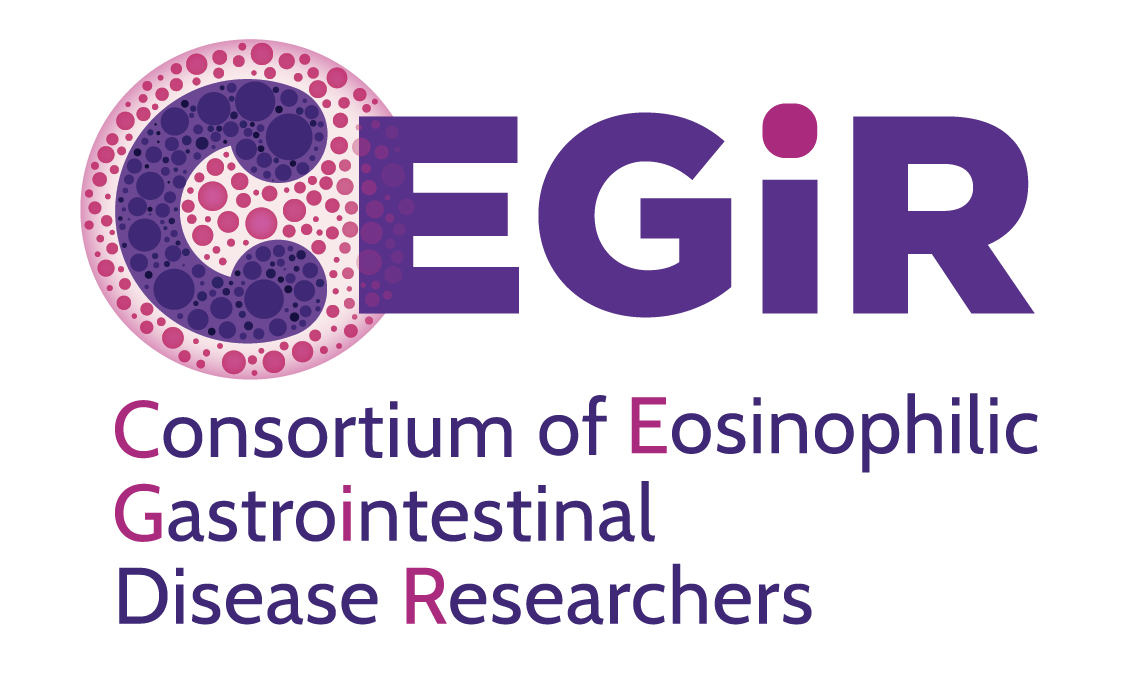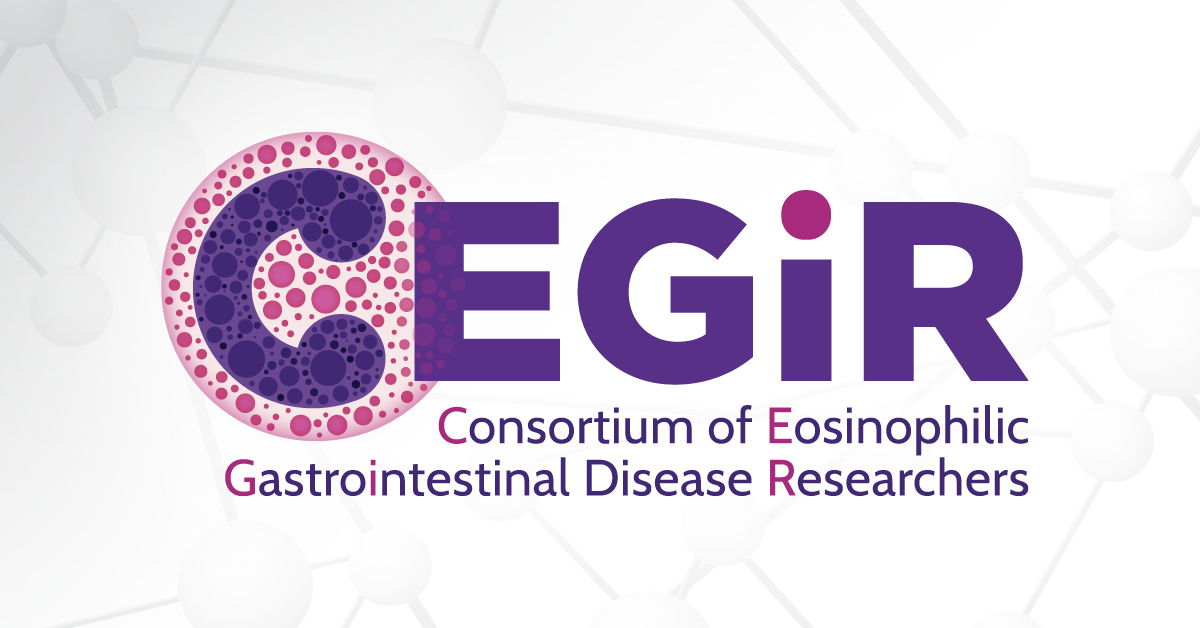With the creation of the Consortium of Eosinophilic Gastrointestinal Disease Researchers (CEGIR, https://www.rdcrn.org/cegir, U54 AI117804) in 2014, patient advocacy groups (PAGs) were formally incorporated into the unified infrastructure to facilitate research on rare, chronic, inflammatory conditions of the gastrointestinal tract called eosinophilic gastrointestinal disorders (EGIDs). The inclusion of the patient perspective has markedly improved the paradigm of collaborative efforts for EGIDs, including development of thea RDCRN CEGIR Contact Registry. Three CEGIR patient advocacy groups—the American Partnership for Eosinophilic Disorders (APFED), Campaign Urging Research for Eosinophilic Disease (CURED), and the Eosinophilic Family Coalition (EFC)—embody these advocacy efforts and provide insight into the differences that CEGIR has made for their organizations and children and adults with EGIDs.
(APFED, www.apfed.org)
Founded in 2001, the APFED mission is to passionately embrace, support, and improve the lives of patients and families affected by eosinophil-associated diseases through education and awareness, research, support, and advocacy.
Having long advocated for federal recognition and funding for eosinophil-associated diseases, APFED has been a long-term strategic partner for CEGIR investigators, from the planning stages of the grant application process through its current operations.
CEGIR has embraced the formal PAG role in the consortium and has actively sought participation at all levels. APFED is able to provide input relative to the patient perspective for the development and implementation of study protocols, and in turn, is able to utilize a variety of communication platforms and forums to facilitate recruitment and share research results.
Ongoing studies at designated CEGIR sites across the nation, and the emerging publications resulting from this research, are contributing to a growing knowledge base on EGIDs and increasing awareness about these disorders.
As part of APFED’s commitment to education, CEGIR investigators and research will be an integral part of APFED’s 16th annual patient conference to be held in July 2018 at Children’s Colorado in Denver, one of the primary participating CEGIR sites. APFED and CEGIR will cross-promote this research and patient education conference with the goal of fostering improved recognition of CEGIR and its work, as well as the Rare Diseases Clinical Research Network (RDCRN), among the broader patient community for eosinophil-associated diseases.
Campaign Urging Research for Eosinophilic Disease
(CURED, www.curedfoundation.org)
CURED is a not-for-profit foundation dedicated to those suffering from EGIDs. CURED is committed to raising substantial funding to aid in research, advocating on behalf of patients with EGIDs and their families, and working to educate and increase awareness about this complex group of diseases. CURED both supports and is a part of CEGIR, which is funded by the NIH and is part of the RDCRN, an initiative of the Office of Rare Diseases Research (ORDR), National Center for Advancing Translational Sciences (NCATS). In turn, CEGIR is dedicated to improving the lives of individuals with EGIDs.
CURED is an important part of the CEGIR team and contributes numerous resources to the consortium, including but not limited to: efficient pathways to communicate the latest clinical and research developments to patients and their families; a forum for the collection and dissemination of patient and family perspectives and priorities; public educational initiatives to raise awareness of and quality of care for EGIDs; building the RDCRN CEGIR Contact Registry; and financial support for important research and clinical efforts.
This year in collaboration with CEGIR investigators and Cincinnati Children’s, CURED held their bi-annual conference to bring patients, families, doctors, researchers, pharma groups and the like together. They were there to listen, learn, teach, and share their findings in the feat to finding a cure. This year’s conference had the largest doctor/patient turnout to date. CURED and CEGIR investigators at Cincinnati Children’s welcomed doctors from eight countries and five continents. Having the doctors and families of patients come together in a setting like this gave the families hope and showed them how dedicated the doctors and researchers are to finding a cure. In turn, the patients and families were also able to share with the doctors and researchers their concerns and real-life stories about what it is like living with an eosinophilic disease. The conference was a win-win for all involved, and the next CURED conference will be in 2019. In the words of Ellyn Kodroff, President of CURED, “Thank you for helping to change the quality of life for our children. We hope to continue to have your support.”
Eosinophilic Family Coalition
(EFC, www.eoscoalition.org)
Founded in 2011, the EFC has a mission to support and enhance the lives of families living with eosinophilic disorders. This is accomplished through a multi-faceted support model that offers both professional and peer-to-peer support opportunities. Families living with eosinophilic disorders often report feelings of isolation and helplessness. The work of CEGIR has already begun to address some of these sentiments. Prior to the foundation of CEGIR, families had limited access to participate in clinical trials. The continued expansion of participating CEGIR sites means that more patients have the opportunity to enroll in studies and have access to breakthrough treatments that would not be available to them otherwise. Through completion of the RDCRN CEGIR Contact Registry questionnaire, families can provide specific information that can drive future research endeavors. The RDCRN CEGIR Contact Registry newsletter provides families not only with information about upcoming studies, but also with insights into CEGIR researchers and activities. In addition, the newsletter connects families with the PAGs that are here to serve and support them.
One of the strongest assets of CEGIR is the collaborative nature of the consortium. Researchers, clinicians, and PAGs have come together to prioritize, develop, and execute studies that are meaningful to the EGID community. This multidisciplinary and multisite effort allows the best minds to join forces to improve outcomes for families impacted by these disorders. An additional strength of CEGIR is its support of upcoming researchers. This next generation of clinicians and scientists bring a unique and diverse perspective thus leading to better treatment options and therefore improving the quality of life of patients living with eosinophilic disorders.
Related Articles
CEGIR – Changing the paradigm in research of eosinophilic gastrointestinal disorders
By:
Shawna Hottinger, MS
Denise Mack, BA
Ellyn Kodroff
Cathy Reidy
Melissa Scott, RN, BSN


